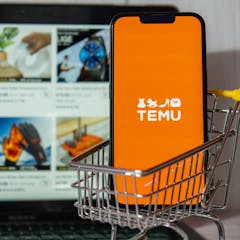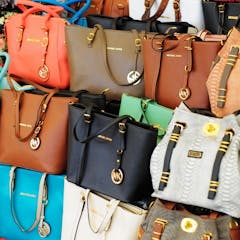
Artikel-artikel mengenai Consumer behaviour
Menampilkan 1 - 20 dari 78 artikel

Despite our best intentions, most of us rarely read the fine print and simply agree to terms and conditions while ignoring the consequences.

Understanding the traits of different customer groups can help shoppers and businesses serve their communities more ethically and effectively, especially in times of crisis.

Once a cornerstone for many food retailers, brand loyalty is eroding as consumers prioritize cost savings over long-term brand relationships.

While Temu employs common sales promotion tactics seen on other e-commerce platforms, it uses what is arguably the broadest range of these techniques.

We are easy prey for drip pricing, the practice of incrementally disclosing unavoidable additional fees, squeezing our wallets and feeling unfair.

New research shows that Americans may have absorbed public messaging about the importance of recycling too well.

Returns cost companies billions of dollars in lost sales. They also generate emissions and packaging waste. Two logistics experts offer some tips from psychology for more sustainable returns.

Audiences love improvised, off-the-cuff entertainment, and new research suggests it’s because spontaneity seems to offer a glimpse of the performer’s authentic self.

Retail stores change the prices of their products based on the shopping habits of consumers. But consumers come in a variety of types, and not all of them influence prices equally.

Scrolling TikTok or Instagram causes mental fatigue, which can lead people to purchase items based on how many ‘likes’ an ad has instead of how much value the product will bring them.

The perspective that U.S. retailers are somehow more prone to failure than Canadian retail chains is unconvincing, but the Canadian retail landscape is challenging for newcomers.

The global trade of counterfeit and pirated products costs countries like Canada billions a year. Governments and industries must come together to protect Canadians.

Companies seen as big polluters suffer little in terms of reputation and sales when they are found making misleading claims about protecting the environment.

Subsidies are often a policy go-to for governments wanting to encourage more climate-friendly behaviours. But they should be used with caution.

The rich history of UK consumer culture has been captured in the composition of the ‘basket of goods’ used to measure inflation.

The sneaky strategy of reducing pack sizes shows the strength of consumers’ cognitive bias towards focusing on price, no matter what.

The introduction of these technologies in Ghana has created an enabling platform for consumers to use their mobile phones to pay for goods and services

Studies show that when people can ride in a car without having to operate it, they increase their car use. That could increase traffic and pollution, unless government puts a price on car travel.

We’ve seen panic buying, the rise of the “homebody economy” and a strong shift towards contactless shopping. So what now?

As continued panic buying will only perpetuate any fuel shortages, it’s important to think about what can be done to curb it.
